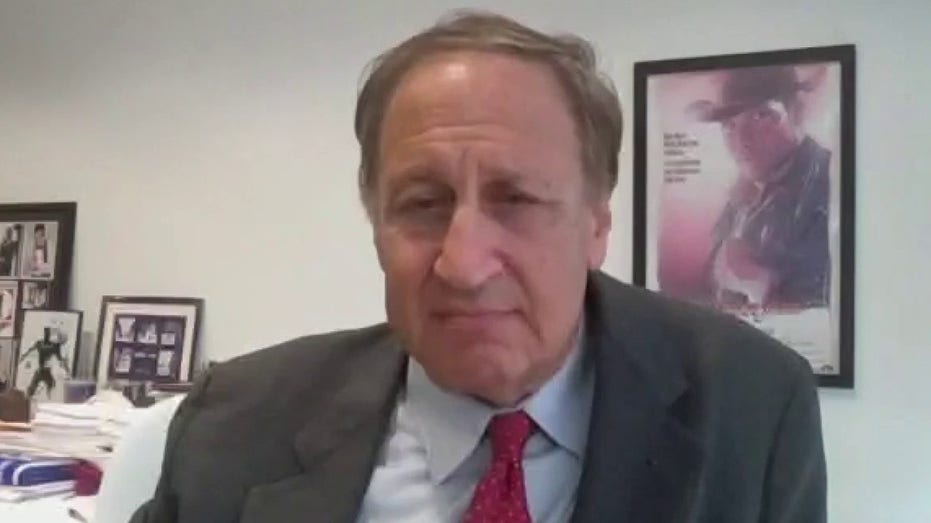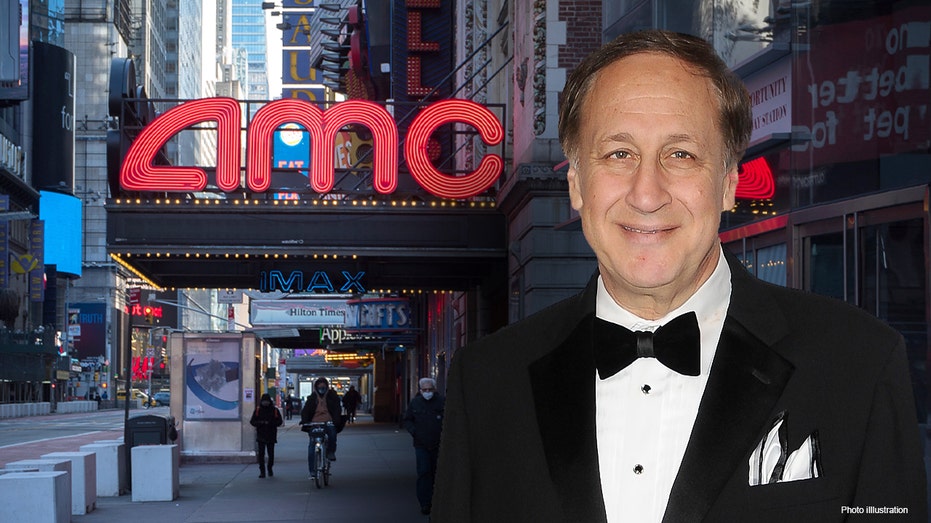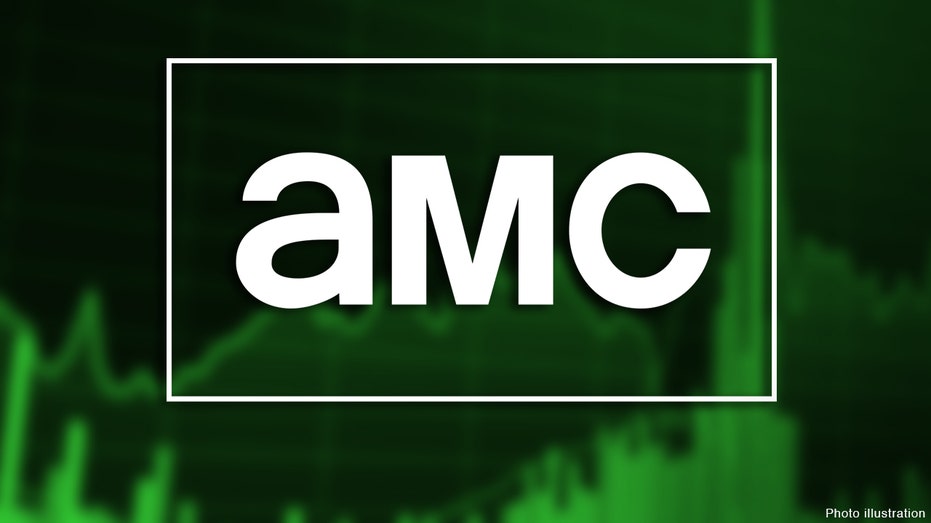Data shows AMC insiders got rich off retail traders
Company insiders sold $883.5 million in stock over the past two years
Wall Street asking for more disclosure on AMC's preferred stock offering
FOX Business senior correspondent Charlie Gasparino explains why there seems to be confusion surrounding AMC's preferred stock offering on 'Cavuto: Coast to Coast.'
At least some people got pretty rich from AMC’s two-year stock roller coaster, but it wasn’t the company’s super loyal, buy-and-hold investors known as the "Apes."
A Fox Business analysis shows that company insiders such as hedge funds, private equity firms, as well as board members, top executives and other big investors in the world’s largest movie theater chain sold a staggering $883.5 million in stock over the past two years at prices significantly higher than they are today.
According to information from Dataroma, a website that tracks the portfolios of prominent investors and their real-time stock transactions, the most significant chunk of stock sales came from PE firm Silver Lake, hedge fund Mudrick Capital and Wanda America Entertainment, part of China-based conglomerate Wanda Group. Combined, they unloaded $782 million of stock.
GAMESTOP FIRES CFO AMID STAFF SHAKEUP

AMC CEO Adam Aron (Fox News / Fox News)
But company officials, such as CEO Adam Aron, AMC’s chief financial officer and human resources chief, sold $101.5 million in stock in a series of particularly well-timed and lucrative transactions. These sales occurred after AMC joined the so-called meme stock craze in early 2021, and an army of retail investors began snapping up shares, pushing prices to the moon. Data also shows those company insiders have bought no shares on the secondary market in the past two years.
Shares of AMC have since declined precipitously amid continued operating losses and after management recently announced a new plan to sell stock and dilute investors. Critics of the company say the insider sales underscore how big investors and company executives profited mightily from the loyalty – and some say the lack of market sophistication – of AMC’s predominantly retail or small investor shareholder base.
These shareholders, who call themselves the "Apes," began buying the stock based on tips and gossip spread on Reddit chat rooms and social media during the early days of the pandemic shutdowns. With the Fed keeping interest rates at near zero and printing money, stocks of speculative companies like AMC, computer-game retailer GameStop and retailer Bed Bath & Beyond began to soar and remained elevated for months after.

"Apes" began buying the stock of GameStop and AMC based on tips and gossip spread in Reddit chat rooms and on social media during the early days of the pandemic. (iStock / iStock)
The heavy Ape buying boosted shares and also allowed AMC to avoid bankruptcy following its own pandemic closures of theaters across the country. Management then used the elevated stock price to recapitalize and pay down some debt.
The Dataroma analysis also shows that management may have used the buying frenzy to get rich.
CINEPLEX SEEKS TO REVIVE REGAL MERGER AFTER CINEWORLD BANKRUPTCY
Case in point: AMC’s voluble CEO Adam Aron, who courted the Apes in social media posts and even private meetings, earned $43 million from his insider sales at prices well above the current single-digit value of AMC stock. Shares of AMC have fallen nearly 90% from their highs of a year ago.
"Adam Aron, the AMC executives, and the board ran an enrichment scheme at the expense of individual investors who actually saved the company," said former hedge fund trader Marc Cohodes, a frequent critic of AMC management.
STILL BETTING ON A SHORT SQUEEZE

Adam Aron arrives for the 33rd American Cinematheque Award Presentation Honoring Charlize Theron at The Beverly Hilton Hotel Nov. 8, 2019, in Beverly Hills, Calif. (Albert L. Ortega/Getty Images / Getty Images)
Even as the stock has fallen well below its highs, some of the "Apes" are still vowing in social media posts to hold on to their stock, betting it will spark a so-called short-squeeze that could send shares to $1,000.
In a short sale, an investor profits by borrowing shares, selling them immediately and replacing the borrow when the stock declines. A squeeze occurs when investors band together and refuse to lend or sell shares, sending the stock significantly higher and leading to massive losses for the shorts.
That is what occurred with AMC and other meme stocks in early 2021 when they soared in value, leading to widespread losses among some big investors. Yet, aside from that brief period of euphoria in which one fund, Melvin Capital, was forced to liquidate, the touted squeeze to $1,000 never materialized.
Shares of AMC did climb to just above $72 intraday June 2, 2021. Except for some spikes in price, they have largely declined ever since amid AMC’s uneven box-office performance, continued operating losses and management’s selling of additional "dilutive" shares to secure the company’s balance sheet.
| Ticker | Security | Last | Change | Change % |
|---|---|---|---|---|
| AMC | AMC ENTERTAINMENT HOLDINGS INC | 1.49 | +0.09 | +6.05% |
| APE | NO DATA AVAILABLE | - | - | - |
| GME | GAMESTOP CORP. | 24.99 | +0.33 | +1.34% |
The market losses have been particularly acute for retail holders and others who bailed on the stock only recently. In fact, given the recent declines, only those investors who snapped up shares before or around the beginning of the meme frenzy when the stock hovered at around $5 and below would still be in the green. Shares of AMC (considering a recent stock split with the creation of a new preferred stock) closed Wednesday at a combined $7.49.
A spokesman for AMC had no comment. Aron also declined comment.
DILUTING RETAIL WHILE AVOIDING BANKRUPTCY
Insiders selling their stock is not illegal, of course. In fact, it is quite common in corporate America, where executives often cite "estate planning" for the sales. Executive compensation plans include significant amounts of stock option awards to senior management to align their interests with the interests of shareholders.
Securities regulators mandate disclosure of these insider sales to help alert the investing public of how management may view the company’s business prospects. During much of the period of insider selling, AMC’s financials improved somewhat, particularly after several blockbuster theatrical releases such as "Top Gun: Maverick," which broke box-office records earlier this year, generating $1.4 billion in worldwide ticket sales after 14 weeks.
But AMC faced existential issues even before the shutdown. Headwinds include the rise of streaming, which continues to depress ticket sales, and a significant debt load used to finance past expansion. AMC continues to lose money, albeit at a slower clip, and its box office revenues remain below pre-pandemic levels.
The tough operating environment recently forced one of its competitors, Cineworld, to file for Chapter 11 bankruptcy reorganization. Aron has said that AMC will avoid a similar fate based on past recapitalization plans and a more recent one where he created a new preferred stock, known as the "Ape," a homage to his loyal retail investor base.
Surviving bankruptcy will come at a cost for retail holders, who comprise 90% of all AMC’s investors. The creation of the Ape is the equivalent of a stock split, and it sets the stage for the significant sale of stock and dilution of shares in the weeks to come.

AMC Logo
In SEC filings, and repeated in media reports, AMC has warned investors that its shares are over-valued based on standard metrics and to be prepared "to incur the risk of losing all or a substantial portion of your investment." Then, in late September, when AMC announced plans to sell as much as 425 million new Ape shares, Aron described the move as "good dilution" to help AMC avoid a fate similar to Cineworld.
But his comments were widely criticized by analysts because such a term doesn’t exist, and dilution almost always leads to investor losses because it increases share counts even if it aids in a company’s survival. Because the Ape is a preferred stock and not common shares, the dilution doesn’t need shareholder approval, unlike prior attempts that investors voted down.
"The situation retail investors find themselves in now is a reflection on management," Wedbush analyst Alicia Reese told FOX Business. "AMC is completely wiping out and diluting its investors who have continued to flee."
INSIDERS CASHING OUT BIG TIME
And that’s after the insiders began cashing out of the stock. Take Mudrick Capital. Before the meme stock craze began, the New York-based hedge fund sold $26.7 million of its AMC stake in December 2020. The stock price then ranged from $2.50 to $3.40.
CLICK HERE TO READ MORE ON FOX BUSINESS
Then, in June, AMC disclosed in an SEC filing that it had entered into an agreement with Mudrick Capital, a large creditor and investor, to raise an additional $230.5 million. The company raised the money by selling 8.5 million shares of AMC stock at $27.12 per share.
The stock rallied on the news. The same day the sale was announced, the stock hit an intraday high of $33.53, Mudrick sold its entire stake for an undisclosed profit. Based on that stock price, Mudrick could have netted more than $40 million in the trade. A Mudrick press official had no immediate comment.
Silver Lake, which held a board seat, sold $534.8 million in AMC stock in the opening days of the meme mania, selling at prices ranging from $14 to $24 a share. A Silver Lake press official had no immediate comment.
Wanda Entertainment, another board member, sold $220.7 million of its AMC stake between Feb. 1 and March 20 of 2021 at prices of between $13.98 and $14.60, according to Dataroma. Wanda press officials had no immediate comment.

The AMC sign at the closed AMC Burbank 16 movie theater complex April 29, 2020, in Burbank, Calif. (AP Photo/Chris Pizzello, File / AP Newsroom)
Several AMC corporate insiders appear to have timed their sales even better than the hedge fund traders, the Dataroma report indicates. For instance, on June 3, 2021, just one day after AMC touched its all-time intraday high of $72.62, directors Anthony Saich and Gary Locke each sold shares worth $600,000 and $1.7 million, at $58.50 and $49.82, respectively.
That same day, Daniel Ellis, the company’s senior vice president of global development; John McDonald, the executive vice president of U.S. operations; and HR chief Carla Chavarria sold $681,659, $1.71 million and $2.5 million worth of shares, respectively, at prices of $49.52, $56.59 and $62.67.
GET FOX BUSINESS ON THE GO BY CLICKING HERE
Later that year, in November, the company’s Chief Financial Officer Sean Goodman made $6.6 million by unloading his stock at $39.21 and $40.36 per share. So far this year, Goodman has sold $3.4 million of his stock holdings at prices ranging from $18 to $22.98 a share.
Aron, 68, has been CEO since 2015. He sold just over $42 million of his AMC holdings in three chunks beginning in November 2021 through January 2022 at prices ranging from $22.84, $30.86 and $40.52 a share.
Aron disclosed his planned sales on an earnings call in August 2021 and said he would use the proceeds for estate planning purposes. On an earnings call in January 2022, he said, "Those sales are now finished."





















